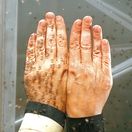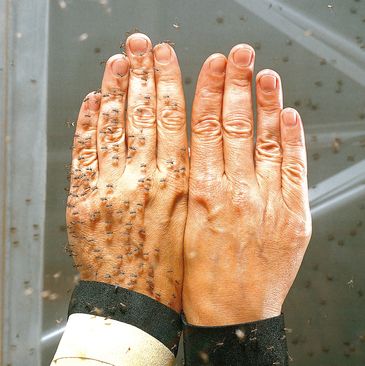Asia
EMEA

LANXESS Canada Contacts
Contact our Sites in Canada
Media Inquiries
General Inquiries
Please click here to e-mail LANXESS Canada with product inquiries and general requests.
Global Press Releases
2016-02-02
Using Saltidin to guard against the Zika virus
Insect repellents containing the active ingredient of Saltigo protect against infection with dangerous diseases by keeping mosquitoes at bay
People traveling a long way from home to tropical regions need to take particular care at the moment, because malaria and dengue fever are not the only diseases that can result from a mosquito bite in these warm and humid areas. In Latin America’s largest country Brazil, for example, the Zika virus is currently causing great concern and led the Brazilian authorities to declare a health emergency at the end of 2015. The World Health Organization (WHO) is not advising against travel to areas where the disease is endemic, but it is recommending keeping the insects that transmit the disease at bay by covering the skin with clothing, protecting beds with mosquito nets and using mosquito repellents, with icaridin a product of choice. Saltigo GmbH produces this tried-and-tested active ingredient and markets it under the brand name Saltidin. It is used by numerous manufacturers worldwide to formulate insect repellents. “Saltidin has already proved effective in preventing millions of people from being bitten by insects and we hope our active ingredient will make a key contribution to stemming the spread of the Zika virus,” said Saltigo Managing Director Wolfgang Schmitz.
The rapid spread of the virus is not restricted to the tropics. According to the latest reports, the Zika virus has also been found in blood samples of patients in the European countries of Italy, United Kingdom, Spain, Switzerland and Denmark. The patients in question had been infected while traveling overseas.
“Saltidin repels mosquitoes by acting on their odorant receptors, thereby disabling their ability to recognize humans as blood donors. Our active ingredient is neither an insecticide nor harmful to humans,” remarks Dirk Sandri, head of Marketing Fine Chemicals at Saltigo. This is a further major benefit of the product in addition to good compatibility with the skin, because it means that Saltidin-containing insect repellents can be utilized during pregnancy. It is particularly important at present to protect expectant mothers from being bitten by diurnal vector mosquitoes – especially in Brazil, Colombia, Suriname, Samoa and Cape Verde – because according to the Pan American Health Organization (PAHO), the rampant Zika virus is now suspected of causing malformations in unborn children in 18 Latin American countries and the Caribbean. Whether and how the virus causes microcephaly, as a result of which babies are born with abnormally small heads and mental retardation, remains to be clarified. Researchers are currently looking into the possible connection, but the results are only expected in a few months’ time.
The WHO declares a global emergency over the rapidly spreading Zika virus. The EU has been warning pregnant women not to travel to South America since November 2015 and the United States followed suit in mid-January. If such trips are essential, America’s CDC (Centers for Disease Control and Prevention) recommend insect repellents, including ones containing the active ingredient icaridin, for pregnant women, nursing mothers and children under the age of two.
The Zika virus originates from the Zika region of Uganda. Barely any research has been carried out on this virus, which was previously restricted to a small number of cases in Africa and isolated cases in Asia, and it is not yet entirely clear how it reached Brazil. What is certain is that, like dengue fever, the virus is transmitted by the Egyptian tiger mosquito, against which products based on Saltidin have proven effective. As with more familiar tropical infectious diseases, initial symptoms are seemingly harmless and include aching joints, a rash, headaches and a slight fever.
Saltidin provides versatile protection
In chemical terms, Saltidin is 1-(1-methylpropoxycarbonyl)-2-(-2-hydroxyethyl)piperidine, or icaridin for short. It has a neutral odor and does not irritate, sensitize or stick to the skin. The active ingredient is suitable for a very wide range of insect repellent formulations that are applied in a variety of ways. It is invisibly soluble in mixtures of alcohol and water, microbiologically stable, non-corrosive and compatible with a large number of plastics. Comprehensive laboratory and field testing proves its wide-ranging effectiveness against blood-sucking insects such as mosquitoes, flies, ticks, gnats, horseflies, ants and cockroaches.
Detailed information about Saltigo’s insect repellent can be obtained online at www.saltidin.com.
Saltigo GmbH is a leading supplier in the field of custom synthesis. The company of specialty chemicals group LANXESS belongs to the Advanced Intermediates segment, which achieved total sales in 2014 of EUR 1,643 million. Saltigo, headquartered in Leverkusen and with production facilities in Leverkusen and Dormagen, employs around 1,200 staff worldwide.
- Gallery




